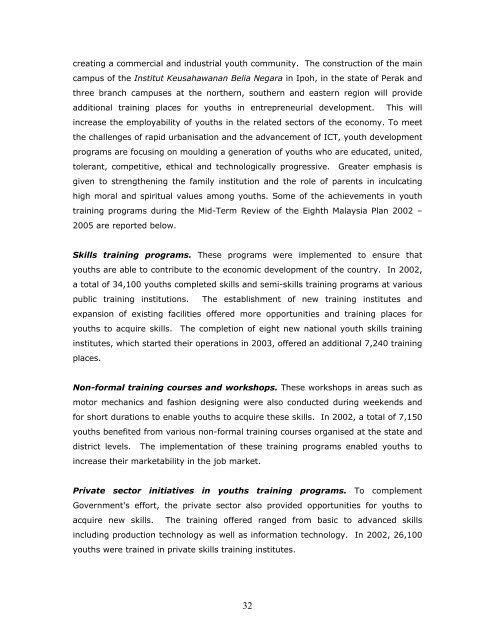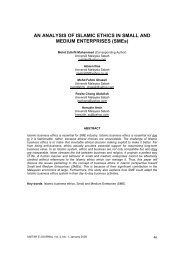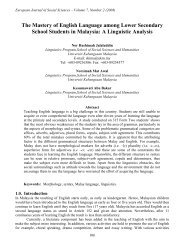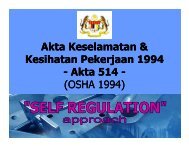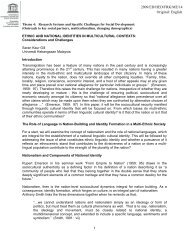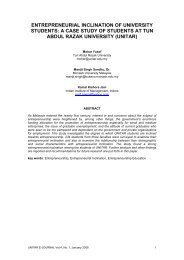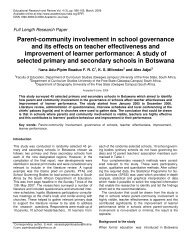THE DEVELOPMENT OF EDUCATION National Report of Malaysia ...
THE DEVELOPMENT OF EDUCATION National Report of Malaysia ...
THE DEVELOPMENT OF EDUCATION National Report of Malaysia ...
You also want an ePaper? Increase the reach of your titles
YUMPU automatically turns print PDFs into web optimized ePapers that Google loves.
creating a commercial and industrial youth community. The construction <strong>of</strong> the main<br />
campus <strong>of</strong> the Institut Keusahawanan Belia Negara in Ipoh, in the state <strong>of</strong> Perak and<br />
three branch campuses at the northern, southern and eastern region will provide<br />
additional training places for youths in entrepreneurial development. This will<br />
increase the employability <strong>of</strong> youths in the related sectors <strong>of</strong> the economy. To meet<br />
the challenges <strong>of</strong> rapid urbanisation and the advancement <strong>of</strong> ICT, youth development<br />
programs are focusing on moulding a generation <strong>of</strong> youths who are educated, united,<br />
tolerant, competitive, ethical and technologically progressive. Greater emphasis is<br />
given to strengthening the family institution and the role <strong>of</strong> parents in inculcating<br />
high moral and spiritual values among youths. Some <strong>of</strong> the achievements in youth<br />
training programs during the Mid-Term Review <strong>of</strong> the Eighth <strong>Malaysia</strong> Plan 2002 –<br />
2005 are reported below.<br />
Skills training programs. These programs were implemented to ensure that<br />
youths are able to contribute to the economic development <strong>of</strong> the country. In 2002,<br />
a total <strong>of</strong> 34,100 youths completed skills and semi-skills training programs at various<br />
public training institutions. The establishment <strong>of</strong> new training institutes and<br />
expansion <strong>of</strong> existing facilities <strong>of</strong>fered more opportunities and training places for<br />
youths to acquire skills. The completion <strong>of</strong> eight new national youth skills training<br />
institutes, which started their operations in 2003, <strong>of</strong>fered an additional 7,240 training<br />
places.<br />
Non-formal training courses and workshops. These workshops in areas such as<br />
motor mechanics and fashion designing were also conducted during weekends and<br />
for short durations to enable youths to acquire these skills. In 2002, a total <strong>of</strong> 7,150<br />
youths benefited from various non-formal training courses organised at the state and<br />
district levels. The implementation <strong>of</strong> these training programs enabled youths to<br />
increase their marketability in the job market.<br />
Private sector initiatives in youths training programs. To complement<br />
Government's effort, the private sector also provided opportunities for youths to<br />
acquire new skills. The training <strong>of</strong>fered ranged from basic to advanced skills<br />
including production technology as well as information technology. In 2002, 26,100<br />
youths were trained in private skills training institutes.<br />
32


